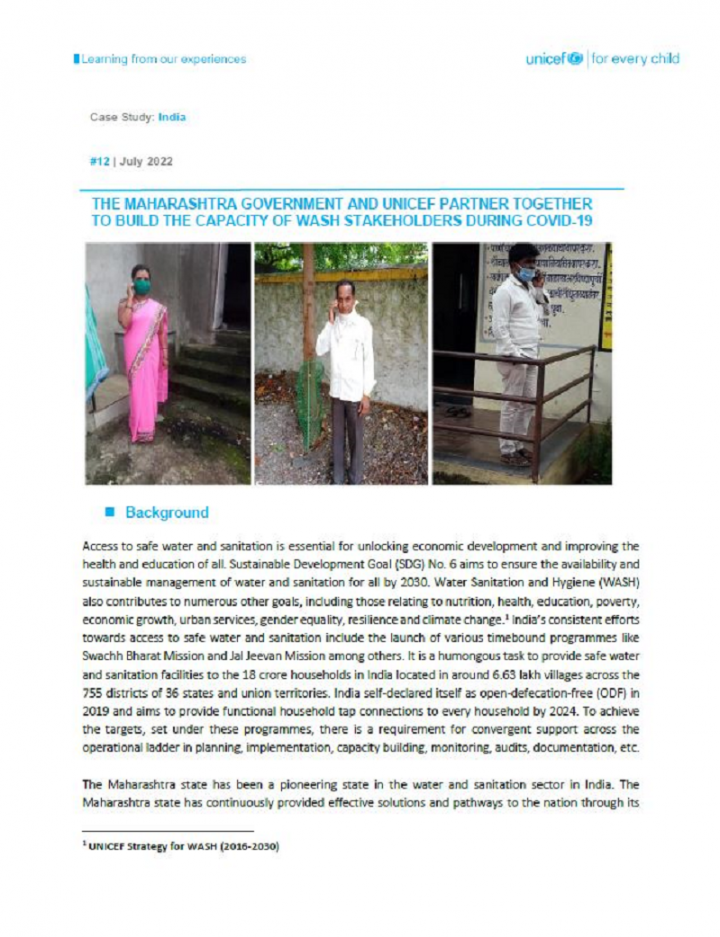THE MAHARASHTRA GOVERNMENT AND UNICEF PARTNER TOGETHER TO BUILD THE CAPACITY OF WASH STAKEHOLDERS DURING COVID-19
Vharkat, B. (2022)

Published in: 2022
Pages: 5
Publisher:
UNICEF
Author:
Vharkat, B.
Uploaded by:
SuSanA Admin
820 Views
7 Downloads
Access to safe water and sanitation is essential for unlocking economic development and improving the health and education of all. Sustainable Development Goal (SDG) No. 6 aims to ensure the availability and sustainable management of water and sanitation for all by 2030. Water Sanitation and Hygiene (WASH) also contributes to numerous other goals, including those relating to nutrition, health, education, poverty, economic growth, urban services, gender equality, resilience and climate change.1 India’s consistent efforts towards access to safe water and sanitation include the launch of various timebound programmes like Swachh Bharat Mission and Jal Jeevan Mission among others. It is a humongous task to provide safe water and sanitation facilities to the 18 crore households in India located in around 6.63 lakh villages across the 755 districts of 36 states and union territories. India self-declared itself as open-defecation-free (ODF) in 2019 and aims to provide functional household tap connections to every household by 2024. To achieve the targets, set under these programmes, there is a requirement for convergent support across the operational ladder in planning, implementation, capacity building, monitoring, audits, documentation, etc.
Bibliographic information
Vharkat, B. (2022). THE MAHARASHTRA GOVERNMENT AND UNICEF PARTNER TOGETHER TO BUILD THE CAPACITY OF WASH STAKEHOLDERS DURING COVID-19. UNICEF
Filter tags
English South Asia














